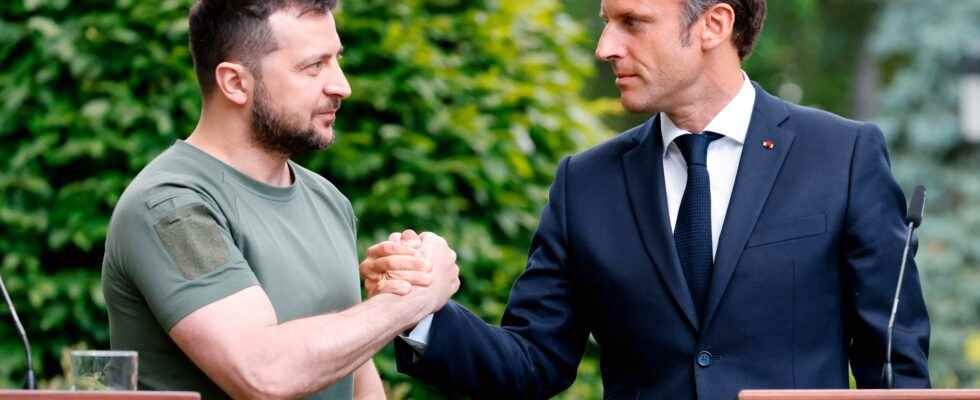Should Ukraine get candidate status for the EU?
Of course, the European Commission is expected to say today – with the support of the EU’s heaviest member states.
All the speculation has long suggested that the European Commission will propose that Ukraine and probably also Moldova be given the status of candidate countries for the EU.
The issue is expected to be the main topic when the Commission today, unusually enough, holds its weekly meeting on a Friday.
Message from there will probably come at lunchtime. And given the words of the heavyweight EU leaders who visited Kyiv yesterday, it looks bright for the Ukrainian hopes.
“All four of us support immediate status as a candidate country for membership,” said French President Emmanuel Macron, speaking to German Chancellor Olaf Scholz, Italian Prime Minister Mario Draghi and Romanian President Klaus Iohannis.
Reluctant countries
Traditionally, otherwise, EU member states have had a much cooler attitude to further EU enlargement than the European Commission and the European Parliament have.
For example, northern Macedonia and Albania have for several years now been waiting for the green light to start negotiating EU membership, having been granted candidate status as early as 2005 and 2014 respectively. In recent years, it is instead Bulgaria that says no, referring to an infected quarrel about language and history.
In several Western European countries, there is at the same time a different kind of resistance, with concerns about high costs and rising crime and doubts about corruption and the view of democracy and human rights.
Long wait
Decisions on possible candidate status are expected to be made when the EU countries’ heads of state and government hold a summit in Brussels this midsummer.
Even if Ukraine receives candidate status, it is at the same time very far from real membership. The EU has clear criteria for what must be met in order to approve a new member. It often takes many years of negotiations to tick off the requirements in 35 different areas, on everything from free movement of goods to fisheries policy, customs rules and budgetary requirements.
Countries such as Serbia and Montenegro have been conducting formal EU accession negotiations since 2014 and 2012, respectively, but are still considered to have a long way to go. Talks that no new enlargement will take place until 2025 at the earliest have been increasingly replaced by 2030, or even later.
Facts
In the EU’s waiting room
Two countries are currently negotiating EU membership: Montenegro (since 2012) and Serbia (since 2014). Negotiations have also begun with Turkey (2005) but have since been frozen due to criticism of the democratic development in the country.
Two more countries have formal status as candidate countries: Northern Macedonia (since 2005) and Albania (since 2014). The start of negotiations has been promised, but has not yet been finally granted.
In addition, four countries have submitted applications for membership: Bosnia and Herzegovina (2016), Georgia (2022), Moldova (2022) and Ukraine (2022). However, there are still no decisions to give them candidate status.
Kosovo, in turn, is considered a “potential candidate”, but has so far not applied – nor been recognized as an independent country by all the current 27 EU countries.
Read moreFacts
The Copenhagen criteria
At a summit in Copenhagen in 1993, the EU member states established basic criteria for what it takes to become a member:
* stable institutions guaranteeing democracy, the rule of law, human rights and respect and protection of minorities
* a functioning market economy and the capacity to handle competition and market forces in the EU
* the ability to take in and effectively implement the obligations of a membership, including complying with the objectives of political, economic and monetary union.
Source: European Commission.
Read more
